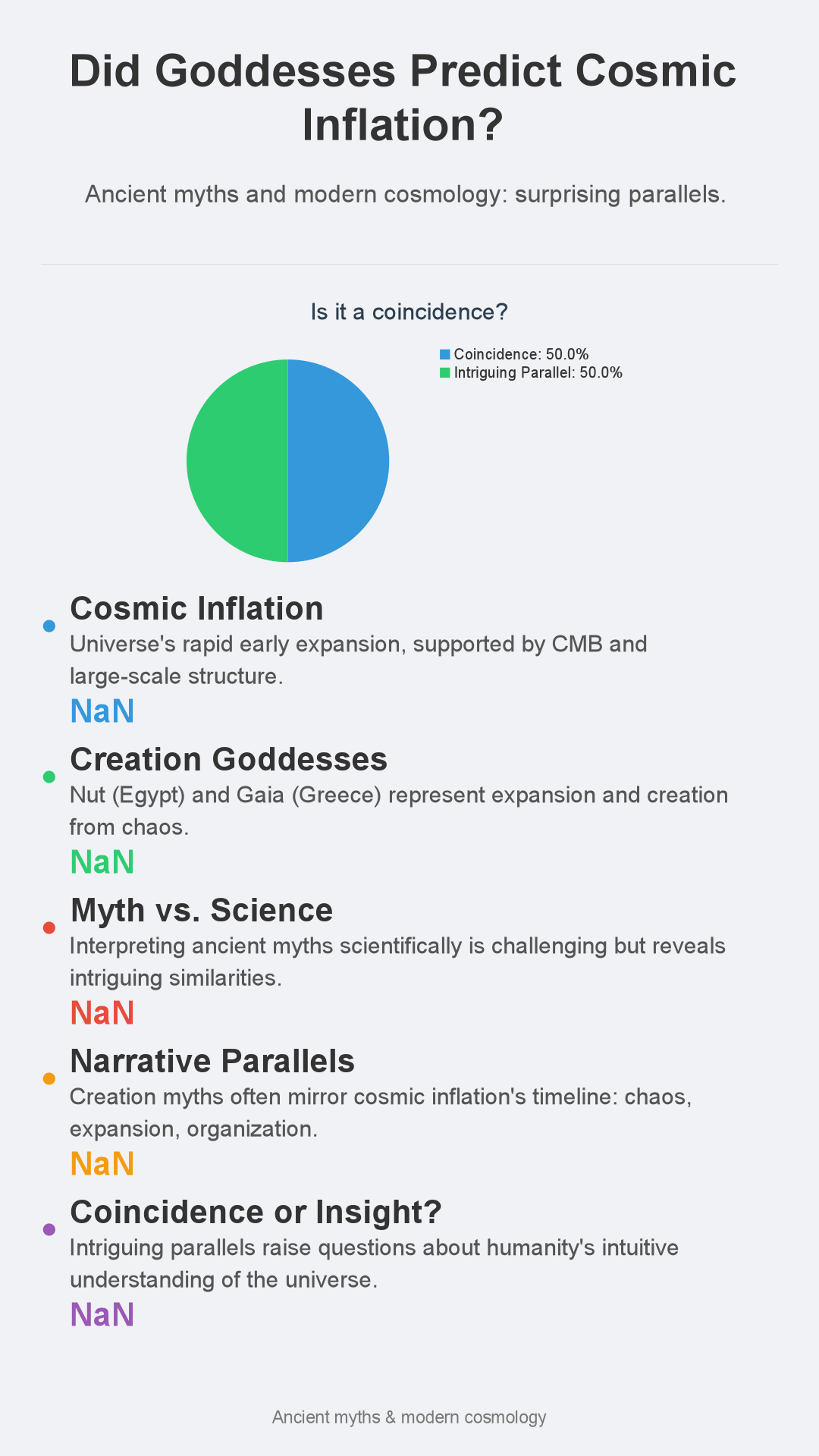
Did ancient goddesses inadvertently predict cosmic inflation? This video explores the intriguing par
What if the dusty pages of ancient myths held cryptic clues about the universe’s origins? Prepare to reconsider your understanding of ancient goddesses and the mind-bending science of cosmology.
Like and follow for more explorations into the strange intersection of mythology and science! After all, the universe is already pretty bizarre – let’s add ancient goddesses to the mix.
Key Point 1: The Scientific Basis of Cosmic Inflation
Sub-topic 1a: Definition and explanation of cosmic inflation
Cosmic inflation, simply put, is the theory that the universe experienced a period of incredibly rapid expansion in its earliest moments.
Imagine exponential growth on a cosmic scale – faster than a viral TikTok trend. It’s a breathtaking expansion, stretching the universe from subatomic size to vastness in a tiny fraction of a second.
Sub-topic 1b: Evidence supporting cosmic inflation
This might sound far-fetched, but it’s supported by scientific evidence.
The cosmic microwave background radiation – the Big Bang’s afterglow – and the universe’s large-scale structure strongly align with inflation’s predictions.
Sub-topic 1c: Key characteristics of inflation
The hallmark of inflation is, of course, exponential expansion. But it also explains the universe’s remarkable uniformity.
Picture an uneven lump of clay; stretching it dramatically smooths out the imperfections.
Key Point 2: Ancient Goddesses and Creation Myths: A Comparative Analysis
Sub-topic 2a: Analysis of specific goddesses associated with creation or cosmic events
Consider Nut, the Egyptian sky goddess.
Her image, often depicted as arching over the earth, bears a striking resemblance to the expansion of the universe. Then there’s Gaia, the Greek mother earth, born from chaos and creating the world from seemingly nothing.
This echoes the universe’s spontaneous generation from a quantum fluctuation, doesn’t it?
Sub-topic 2b: Examination of symbolic representations
The symbols themselves are compelling. Ancient art and mythology depict expansion, creation from nothingness, and rapid growth.
These weren’t just aesthetic choices; they were attempts to understand existence’s fundamental mysteries.
Sub-topic 2c: Discussion of the limitations of interpreting ancient myths through a modern scientific lens
Let’s acknowledge the limitations. Ancient cultures lacked the scientific tools to understand cosmic inflation.
Interpreting their myths through a modern scientific lens is inherently risky. We risk imposing our current understanding onto a framework vastly different from their own.
Key Point 3: Interpreting the Parallels (or Lack Thereof)
Sub-topic 3a: Exploring potential similarities between the narrative structure of creation myths and the timeline of cosmic inflation
Despite these limitations, the parallels are captivating.
Many creation myths share a narrative structure: a sudden emergence from chaos, followed by expansion and organization—remarkably similar to cosmic inflation’s timeline. Is this mere coincidence? Perhaps.
Sub-topic 3b: Addressing potential coincidences versus genuine predictive capabilities
The core question remains: coincidence or something more profound? A definitive answer is elusive. The similarities could be purely coincidental.
Sub-topic 3c: The role of anthropomorphism in interpreting natural phenomena
Anthropomorphism – attributing human characteristics to non-human entities – is a natural human tendency. We create stories to make sense of the world.
Did ancient goddesses predict cosmic inflation? Likely not in a literal, scientific sense.
However, the intriguing parallels between ancient mythology and modern cosmology prompt fascinating questions about humanity’s intuitive understanding of the universe. What’s your take?
Share your thoughts in the comments! And don’t forget to like and follow for more weird science and pop-culture ponderings. The universe, and its mysteries, are simply too intriguing to ignore.

Enjoyed this? Check out our https://www.youtube.com/@viral-heartbeat
Enjoyed this? Check out our https://www.youtube.com/@viral-heartbeat



